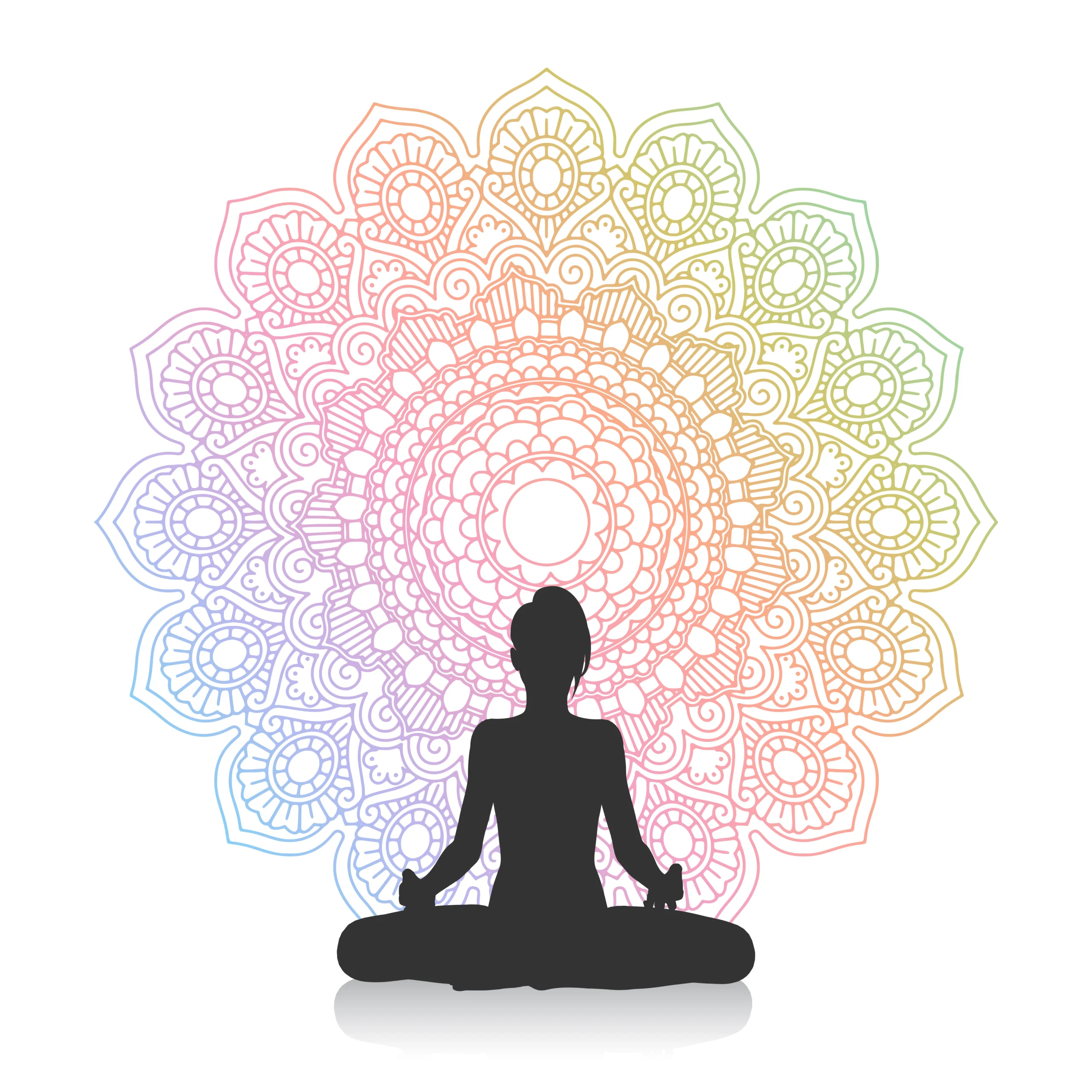In the chaotic hustle and bustle of modern life, stress and anxiety have become all too common. The constant pressure to perform, the never-ending to-do lists, and the overwhelming sense of responsibility can take a toll on our mental well-being. In such turbulent times, the ancient practice of meditation emerges as a beacon of hope, offering a path to healing and inner peace. Let’s delve into the profound ways in which meditation serves as a powerful tool to reduce stress and anxiety, guiding us toward rejuvenation and balance.
The Burden of Stress and Anxiety
Before delving into the path to the healing prowess of meditation, it’s crucial to grasp the impact of stress and anxiety on our lives. In our fast-paced society, experiencing stress and anxiety is commonplace. Whether it’s work-related stress, financial worries, or personal issues, we all face situations that can trigger these feelings. Understanding the root causes of stress and anxiety is the first step toward finding effective solutions for a path to healing.
The body’s natural response to a perceived threat or danger is stress. It triggers the release of stress hormones like cortisol and adrenaline, preparing us for the fight-or-flight response. While this response can be helpful in certain situations, prolonged exposure to stress can have detrimental effects on our physical and mental health.
Anxiety, on the other hand, is a feeling of unease, worry, or fear about a future event or uncertain outcome. It can manifest as a general sense of unease or specific phobias and panic attacks. Anxiety can be debilitating, affecting our ability to function and enjoy life.
To break free from the grip of stress and anxiety, we need to find ways to recharge and restore balance to our lives. Meditation offers a powerful tool for achieving this.
How Meditation Reduce Stress and Anxiety
Meditation is a powerful practice that allows us to recharge and find solace amid the chaos. Meditation has been practiced for centuries as a means of calming the mind and connecting with a deeper sense of self. Its advantages reach much further than just a temporary break from the pressures of everyday existence. Regular meditation practice can have a profound impact on our mental and physical well-being and path to healing.
One of the key ways meditation helps reduce stress and anxiety is by activating the body’s relaxation response. When we meditate, our heart rate slows down, our breathing deepens, and our blood pressure decreases. This triggers a state of relaxation that counteracts the physiological effects of stress. It helps to break the cycle of negative thoughts and worries that fuel stress and anxiety. By cultivating present-moment awareness, meditation teaches us to observe our thoughts without judgment, allowing us to create space between ourselves and our stressors.
Different Types of Meditation Techniques
Meditation encompasses a wide range of practices, each with its unique focus and approach. Here are some of the most popular meditation techniques that can help reduce stress and anxiety:
1. Mindfulness Meditation: This technique involves paying attention to the present moment, and observing thoughts and sensations without judgment. It cultivates a state of non-reactivity and allows us to develop a greater sense of acceptance and compassion.
2. Transcendental Meditation: Transcendental Meditation involves the repetition of a mantra, a specific word, or phrase, to quiet the mind and induce a state of deep relaxation. It is commonly done for 20 minutes, twice daily. And it helps to reduce stress and anxiety.
3. Loving-Kindness Meditation: This practice entails cultivating sentiments of love, compassion, and kindness directed both inwardly towards oneself and outwardly towards others. It helps cultivate positive emotions and develop a sense of connection and empathy.
4. Breathing Meditation: Breathing meditation focuses on observing the breath, using it as an anchor to bring the mind into the present moment. It can be practiced by simply paying attention to the natural rhythm of the breath or by following a specific breathing pattern.
5. Body Scan Meditation: This technique involves systematically scanning the body, bringing awareness to different sensations and areas of tension. It helps promote relaxation and body awareness.
The Capability of Meditation to Reduce Stress and Anxiety
1. Cultivating Present-Moment Awareness:
At the heart of meditation lies the practice of mindfulness—a conscious awareness of the present moment without judgment. In the whirlwind of our daily lives, our minds often wander into the past or fret about the future, fueling stress and anxiety. Through meditation, we learn to anchor ourselves in the here and now, fostering a sense of calm and clarity amidst the chaos.
2. Soothing the Anxious Mind:
Anxiety thrives on the restless churn of our thoughts, spiraling into a vortex of worry and apprehension. Meditation offers a sanctuary from this mental turbulence, providing a gentle refuge where we can observe our thoughts with compassion and detachment. With regular practice, we develop the resilience to navigate anxiety’s stormy seas with grace and equanimity.
3. Deep Relaxation:
Through meditation practices such as deep breathing and body scanning, you activate your body’s relaxation response, counteracting the physiological effects of stress. As tension melts away, you experience a profound sense of calm and tranquility and a path to healing.
4. Emotional Regulation:
Regular meditation rewires the brain, enhancing emotional regulation and resilience. You become less reactive to stressors, better equipped to navigate challenges with equanimity, and less likely to spiral into anxious thoughts.
5. Increased Self-awareness:
Meditation fosters self-awareness, helping you uncover the root causes of stress and anxiety. By understanding your triggers and patterns, you gain insight into your inner world and can make conscious choices that promote a path to healing and well-being.
How to Start a Meditation Practice to Reduce Stress and Anxiety
1. Start small: Start with only a few minutes of meditation daily, gradually extending the duration as you grow more at ease. Consistency is more important than the length of each session’s path to healing.
2. Create a sacred space: Choose a serene environment specifically for your meditation practice, free from any disturbances or interruptions. Make it a place that feels welcoming and conducive to relaxation and introspection.
3. Establish a routine: Incorporate meditation into your daily routine by setting aside a specific time each day for practice for a path to healing. Regular practice is essential for experiencing the advantages of muse.
4. Find a comfortable position: Choose a posture that allows you to be relaxed and alert. You can sit cross-legged on a cushion, lie down, or even meditate in a chair. The important thing is to find a position that supports an upright spine and allows for deep breathing.
5. Focus on your breath: Utilize the breath as a tether for your concentration. Whenever your thoughts stray, gently redirect your attention back to the rhythm of your breath. Give yourself patience; it’s perfectly normal for the mind to drift during meditation.
6. Be gentle with yourself: Let go of any expectations or judgments you may have about your Muse practice. Keep in mind that mastering meditation requires dedicated practice over time. Approach it with curiosity and kindness, and allow yourself to grow at your own pace.
Read Also: 10 Healthy Foods to Boost Your Mood and Energy Levels
Conclusion
In a world filled with stress and anxiety, meditation offers a path to healing and finding inner peace. By reducing stress and anxiety, meditation allows us to recharge and find solace amid the chaos of modern life.
Through Muse, we cultivate self-awareness, gain clarity, and develop the tools to navigate life’s challenges with greater ease. The benefits of meditation extend beyond the practice itself, enhancing our overall well-being and transforming our lives for the better.



